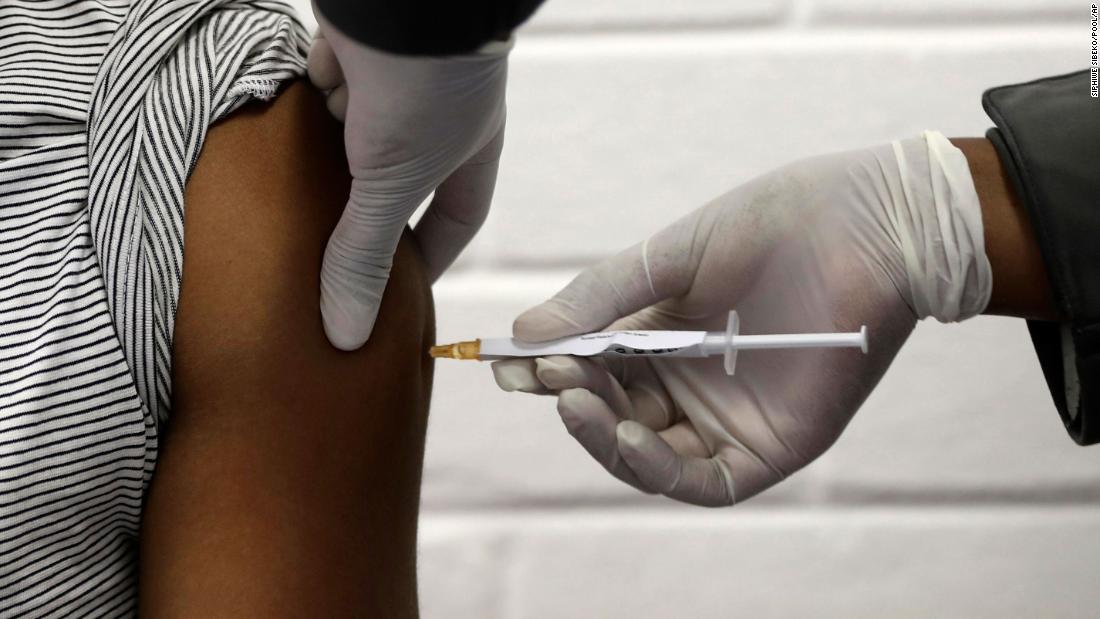“The AU will distribute to countries that have already expressed an interest in acquiring the shares,” South Africa’s Health Minister Zweli Mkhize told lawmakers in Cape Town on Tuesday.
Mkhize said rumors that the injections, which were purchased from the Serum Institute of India (SII), had expired and were being returned to India “were simply not true” and no money was wasted.
“The recent announcement about the limited effectiveness of the AstraZeneca vaccine, which we had already acquired, was certainly disappointing; however, we were determined not to lose the commitment to launch the vaccines in February,” said Mkhize.
The health minister announced that the country had instead secured 9 million doses of the Johnson & Johnson vaccine.
“In fact, we guarantee enough doses to vaccinate all people who will need to be vaccinated in South Africa,” said Mkhize.
South Africa should give Johnson & Johnson vaccine the green light and start giving doses this week.
The launch marks a 180-degree pivot in South Africa, which received 1 million doses of the Oxford-AstraZeneca Covid-19 vaccine and planned to start administering doses to healthcare professionals in February. Another 500,000 Oxford-AstraZeneca doses were due to be delivered by the end of the month.
Instead, South Africa has moved to a new plan. He will start vaccinating healthcare professionals with Johnson & Johnson injections in a research study. The authorities will administer vaccines to health professionals at 20 vaccination centers in each of the country’s nine provinces. More than 380,000 health professionals have registered so far.
Johnson & Johnson’s first batch of 80,000 injections is expected this week, with delivery of 500,000 doses in the next four weeks, said Mkhize. This will be complemented by another 20 million doses of the Pfizer vaccine, scheduled for the end of March.
South Africa has been consulting scientists on what to do with the AstraZeneca vaccine after news that two doses provided “substantially reduced” protection against mild to moderate Covid-19 variant B.1.351.
Seven other countries are now reporting variant B.1351 in Africa – including Ghana, Kenya, Comoros, Botswana, Mozambique and Zambia.
It was not clear from the study, which has not yet been peer-reviewed, whether the Oxford-AstraZeneca vaccine protected against serious diseases of variant B.1.351. The 2,000 participants in the clinical trial were mostly healthy young adults and therefore unlikely to be seriously ill. But, based on the immune responses detected in their blood samples, the researchers said that “there was still some hope” that the vaccine could protect against more serious cases.
AstraZeneca said recently that it is working with the University of Oxford to adapt the vaccine against variant B.1.351 and that it would move it forward in clinical development to make it “ready for delivery in the fall, if necessary”.
Professor Salim Abdool Karim, who is co-chairman of South Africa’s Covid-19 advisory committee, initially told CNN that the country would likely take a “gradual approach” in which they assessed the impact of the Oxford-AstraZeneca vaccine as it did. is launched. But it seems that the country has totally discarded this strategy.
Regarding the future role of Oxford-AstraZeneca in South Africa, Mkhize said only that health authorities would continue to be guided by experts and led by science.
It is a major blow to the Oxford-AstraZeneca vaccine, which has been hailed for its low cost and easy storage as one of the best hopes in the world to defeat the virus.
The COVAX program – a coalition that includes Gavi and the World Health Organization with the aim of distributing Covid-19 vaccines to poorer countries – depends on the Oxford-AstraZeneca vaccine.
Earlier this month, COVAX announced a plan to distribute more than 337 million doses of the Covid-19 vaccine worldwide – of which 336 million doses are the AstraZeneca-Oxford vaccine and only 1.2 million doses are the Pfizer-BioNTech vaccine.
“While a vaccine that protects against all forms of Covid-19 disease is our greatest hope, preventing serious cases and hospitalizations that overburden hospitals and health systems is crucial,” said Dr. Matshidiso Moeti, WHO regional director for health. Africa in a news briefing Thursday.
The second wave of Covid-19 in Africa, which peaked in January, was more deadly than the first, according to Dr. Moeti.
With the launch of vaccines, “if the cases remain mostly mild and moderate and do not require critical care, then we can save many lives,” she added.
CNN’s David McKenzie contributed to this report.
